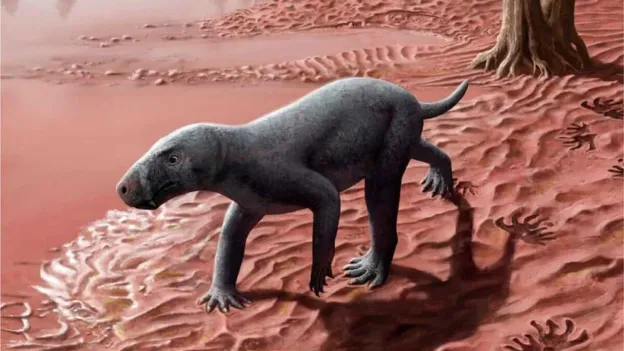Fossil of 'Sabre-toothed Proto-mammal' Found on Mallorca Could Rewrite Evolutionary History

12
World
December 19, 2024 10:50
palma - An international team of paleontologists has discovered a fossil on Mallorca of an evolutionary relative of the first mammal. The finding could potentially rewrite a portion of evolutionary history.
The gorgonopsia belonged to the synapsids, a group of vertebrates from which researchers believe the first mammals evolved. Resembling a modern dog without ears, the creature laid eggs, was warm-blooded, and had a reptilian skin. The fossil is the oldest specimen of gorgonopsia discovered to date.
The 'proto-mammal' was about a meter long and had a sabre-tooth with which it likely hunted small reptile-like creatures. The discovery is also remarkable as never before have remains of an older predator with sabre teeth been unearthed. Its legs were peculiar as well: while mammals have straight legs and reptiles have legs that point sideways, the gorgonopsia had legs positioned somewhere in between. This upright posture allowed for more efficient movement than reptiles.
The discovered fossil remains include fragments of the skull, vertebrae, ribs, and a thigh bone in excellent condition, enabling researchers to study details about its movement and diet effectively.
All continents were part of the supercontinent Pangaea at the time of the gorgonopsia. Scientists previously believed that the evolutionary origin of gorgonopsia was in the temperate climates of Pangaea, based on earlier findings in present-day Siberia and South Africa.
The fossil remains of the specimen on Mallorca are much older, which surprises scientists. The team of paleontologists suspects that the evolutionary origin of gorgonopsia lies in tropical regions as Mallorca was located on the equator during Pangaea.